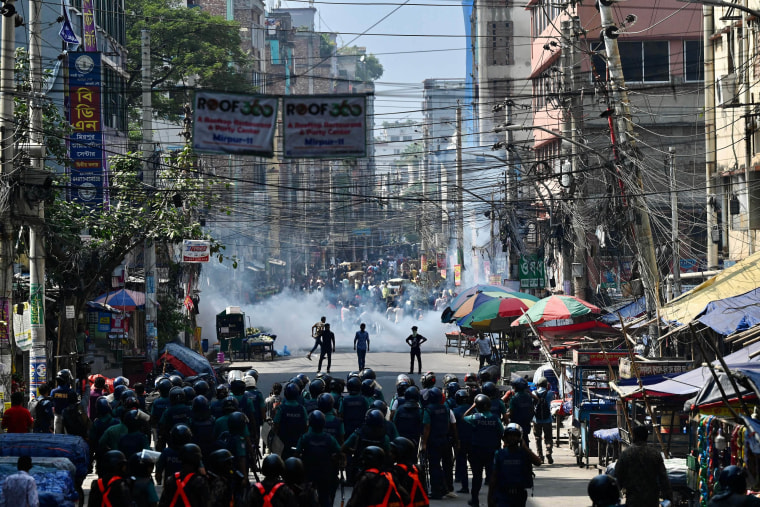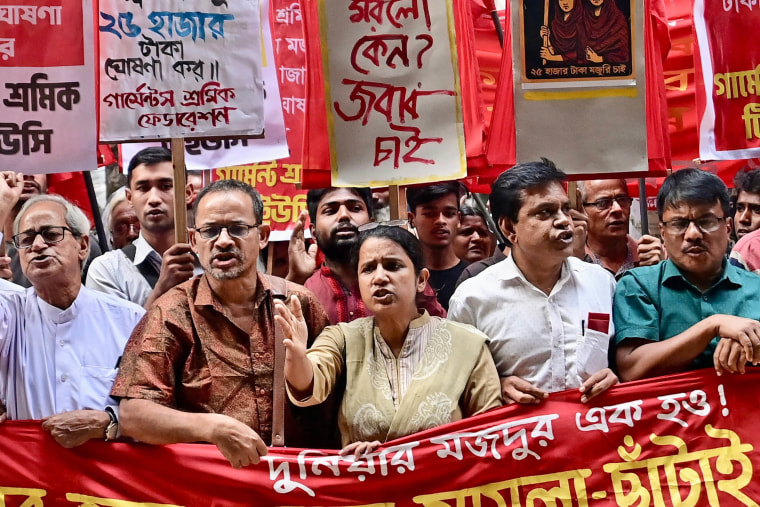DHAKA, Bangladesh — Authorities in Bangladesh announced a new salary structure on Tuesday for protesting garment factory workers with a 56% increase in the monthly minimum wage to $113 from the previous $75, a decision rejected by some workers’ groups as too small.
State Minister for Labor and Employment Monnujan Sufian announced the decision after a meeting of a government-formed wage board made up of representatives of factory owners and workers. She said the new pay structure will take effect Dec. 1.
Critics say the influential factory owners should do more for the workers.
The decision came after weeks of violent protests by workers demanding a $208 monthly minimum wage. Workers have demonstrated in the streets, attacked factories, fought with police officers and burned vehicles.
The protests began after the Bangladesh Garment Manufacturers and Exporters Association offered to increase the monthly minimum wage by 25% to $90.

The last increase in the minimum wage was announced in 2018.
Workers say they currently need to work overtime to make ends meet.
Kalpona Akter, president of the Bangladesh Garment and Industrial Workers Federation, said they were “extremely frustrated” over what she described as a paltry increase.
Akter said workers are struggling because prices of daily commodities are rising.
“This is very frustrating. We can’t accept this,” she said.
Bangladesh is the second-largest garment-producing country in the world after China with nearly 3,500 factories employing about 4 million workers, most of them women, according to the manufacturers’ association.
It says factory owners are under pressure because global brands in Western countries are offering less than before.
Owners argue that production costs have also increased because of higher energy prices and transportation costs.
Bangladesh annually earns about $55 billion from exports of garment products, mainly to the United States and Europe. The country is exploring new markets such as Japan, China and India.

